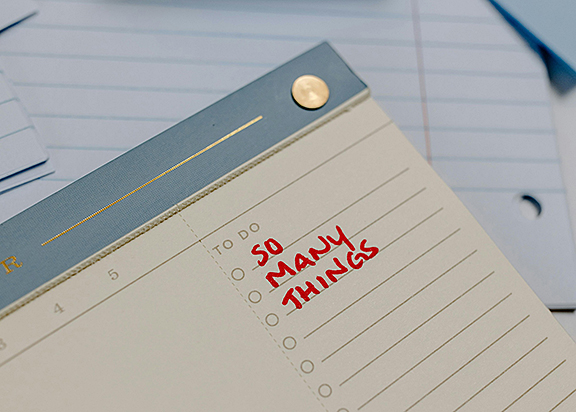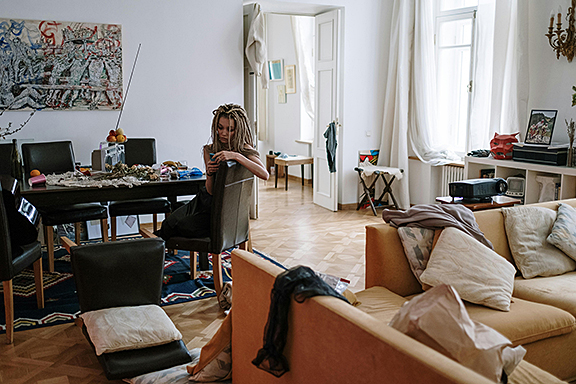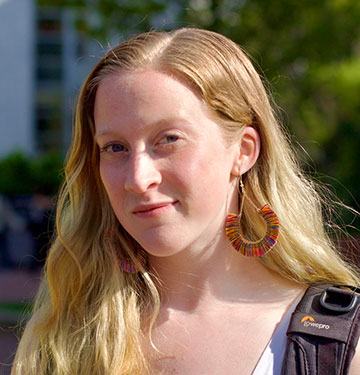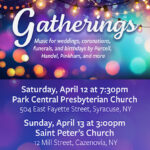What I Learned from Getting an ADHD Diagnosis at 23
Many people struggle with attention-deficit/hyperactivity disorder, or ADHD. It’s often diagnosed in adolescence, but some aren’t diagnosed until adulthood. Others are never diagnosed. I wasn’t diagnosed until I was almost 24 years old.
I’ve struggled with concentration and been extremely forgetful for several years. That should’ve been the first hint. Completing homework assignments would take me much longer than it should because I was constantly distracted – whether it was by a noise I heard, a phone notification, or just a random thought I had. Every so often, I got obsessed with a random project and would spend hours on that one thing, forgetting to eat or drink water until I was done. I procrastinated starting other tasks even though I needed to get them done just because getting started felt overwhelming. I talked (and continue to talk) a lot, especially when I get excited about something, monopolizing conversations and interrupting people without thinking about it. These were all signs that I didn’t recognize as signs.
Part of why it took so long to diagnose was that many symptoms of ADHD could be due to other mental health struggles, like depression or anxiety. Until recently I thought getting sidetracked and having a hard time concentrating was just “how I was,” not signs of a broader issue. It wasn’t until a couple years ago that one of my friends with ADHD was talking about her symptoms and I said, “I’m the same way.”
“With which thing?” she asked, wondering which of her symptoms I could relate to.
“Everything you just said,” I replied. She said I probably had ADHD, and that wasn’t even something I’d considered.
Funny enough, I tried to get diagnosed three different times after that. When I was a senior in college, I looked into it. I forgot about it. (A symptom of ADHD.) In grad school, I started the process again. Forgot again. But when I started my professional career, I began to realize how my struggles may actually impact my success in work. I didn’t want to procrastinate or avoid my way out of doing well in my career. So a few months ago, I sought out a diagnosis for the third time.
Now that I have a name to what I’m dealing with, I see my habits through a clearer lens. Having a diagnosis is still pretty new to me, but it’s something I’ve had for most of my life. From my own experience, I’ve learned a few things.
1. Having an answer is awesome.
I always prefer having a clear answer to things. I get anxious when met with uncertainty. So when I finally got a definitive answer, I was relieved. Having a “name to the face” means all the things I’d previously thought were unrelated to each other were actually all under the umbrella of ADHD. If you think you even might have ADHD, it’s so much better to know than to be left wondering.
2. Once you have an answer, you open the door to a lot of resources that can help.
I wish I’d been diagnosed earlier in life. From the outside, I seem to be pretty high-functioning – I got good grades in school, was involved in a lot of extracurriculars, and continue to pursue ambitious goals. But on the inside, I’ve always felt like it took a lot out of me to achieve those things. Everything took too much effort, I was stressed out turning in assignments at the last minute, and I was overwhelmed by a looming sense of disorganization.
If I’d known sooner that I had ADHD, I would’ve been able to access resources that could’ve helped me manage my anxiety and tackle the tasks I needed to complete without as many feelings of dread. I still struggle with these things now because I spent many years unable to access resources like academic support, ADHD-specific therapy, and a community of people who understand me. If you think you have ADHD, those resources can make a big difference.
3. My experience isn’t abnormal.
Many people either put off getting diagnosed, or the thought that they may have ADHD doesn’t even occur to them. As I mentioned earlier, ADHD can manifest in so many different ways. It wouldn’t be weird to think that an inability to concentrate is due to depression, stress, or even just a bad night of sleep. Like me, many people get diagnosed later in life because they don’t recognize their symptoms as symptoms. I thought that I’d just have to fix my concentration issues, task paralysis, and stress on my own.
If you struggle with these things, or any of the other symptoms of ADHD – like constantly misplacing things, feeling restless, being easily distracted, impulsivity, or time management issues – it’s worth seeing whether you may have ADHD. If you think you’re too old to get diagnosed, you’re definitely not, and it’s not unusual to get a late diagnosis. But having an answer that could provide you with more clarity and support is worth it.
4. ADHD isn’t something to be ashamed of.
Part of why I put off getting diagnosed was because it faded from the forefront of my mind. But another reason I hesitated was because I thought procrastinating assignments or tasks just meant I was lazy. I thought an ADHD diagnosis would just be an excuse to continue being lazy. (Spoiler alert: It’s not.)
If I’ve learned anything as a mental health advocate, I’ve learned that everyone struggles with something. Opening up about my own struggles, including ADHD, has made it easier for me to cope with them and shown me that there are so many other people that I can relate to.
5. I’m not alone.
I know a lot of people with ADHD. It seemed like a coincidence at first, but I realized that part of why I get along with them so well is because we have a lot in common. I feel like my circle has grown stronger since I got the answers I needed. Once you learn something new about yourself, you’ll be able to connect more with others who are like you. For me, having a community of people who understand exactly what I’m going through provides me with a wealth of resources to deal with it.
The moral of the story: Even at 23, having an answer made a world of difference. Now I can get better equipped with the tools to work on the things I struggle with, while also having a whole new community to relate to. If you think you may have ADHD, I can guarantee it’s 100% worth it to get answers.












